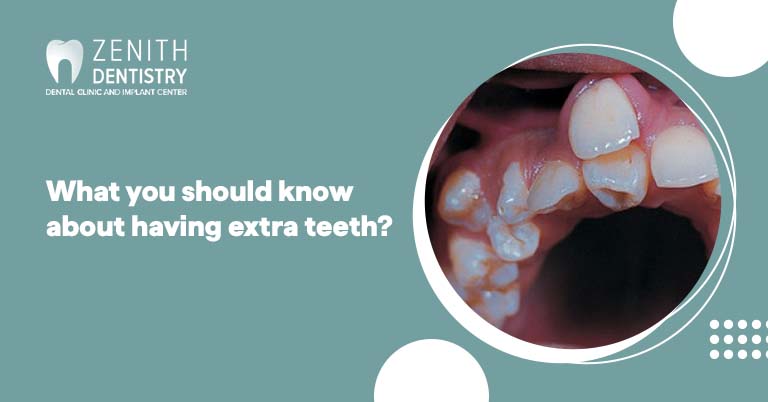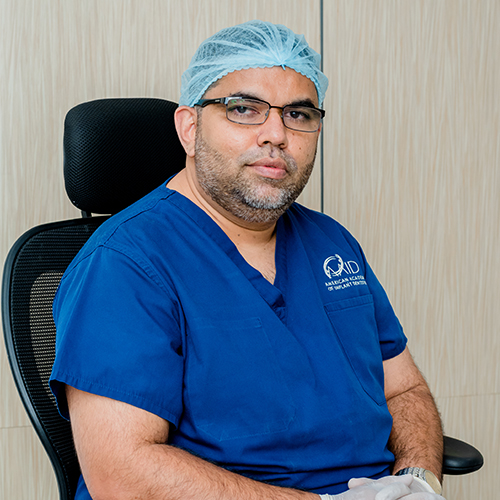
What you should know about having extra teeth?
Every person in the world, irrespective of their stage in life, will always seek extra benefits from all things in life; it can be anything. But always remember the old saying “Too much of anything is always good for nothing”. Not only in sport’s even in real life, the policy of “No extras” will win in the end. You’ll arrive at Headweigh after receiving additional compliments.
Too much criticism will break you down. These are some of the disliked gifts from the extras you wish for. The same is true in this blog on how extra teeth affect dental health.
During childhood days, we have 20 teeth as primary teeth, and as soon as we grow, they will be replaced by 32 teeth, which are called permanent teeth. If you happen to see any extra teeth, either as primary teeth or as permanent teeth. Then, the case is known as Hyperdontia. The extra teeth are also known as supernumerary teeth.
The chance of getting hypodontia in babies is 0.3% to 0.6%. At the same time, the chance of getting hypodontia in adults is 0.1% to 3.8%. Men are more probably get hyperdontia than women. This supernumerary teeth growth is supported anywhere in the curved edges. This is where your teeth join the jaw. This region is known as Dental Arches.
Why does Hyperdontia occur?
There is no desired cause for supernumerary teeth, but our dentists in Sri lanka have seen many people become a victim of hyperdontia due to genetic disorders and syndromes like Fabry disease, Rubinstein-Taybi syndrome, Trichorhinophalangeal syndrome.
In Fabry disease, Alpha-galactosidase A deficiency is involved in this. It impacts the teeth, skin, brain, and neurological system, among other things.
In Rubinstein-Taybi Syndrome results in unusual facial features, low stature, intellectual incapacity, issues with the teeth, eyes, heart, and kidneys, as well as other health issues.
Different types of Supernumerary teeth
Surprisingly supernumerary teeth can be classified into three major categories they are as follows:
1) Supplemental – Supernumerary teeth may be supplemental, with the extra teeth being the same as nearby teeth.
2) Rudimentary – Supernumerary teeth may be rudimentary when the extra teeth look in improper shape; it further classified into two types as follows:
- Tuberculate: When your extra teeth look tube or barrel shape.
- Conical: When your extra teeth look “conical,” with a broad base and thin crown.
3) Odontoma – Sometimes, a dentist could discover that an extra tooth is an odontoma, a benign tumour made up of dental tissue that has grown unnaturally. An odontoma can be simple, consisting of a mass of tissue that does not resemble a tooth or complex, made up of tiny teeth-like structures.
How do Supernumerary Teeth Look Like?
In simple terms, Hyperdontic means the development of extra teeth, but supernumerary teeth can be
- Sometimes be single or multiple.
- Developed on either one or both sides of the mouth.
- Either in the upper jaw or low jaw nor on both the jaw.
- If the extra teeth are visible, it has erupted. They are impacted if the extra teeth are hidden below the gum line. In most cases, extra teeth are single, impacted, and appear in the upper jaw.
When to visit a dentist?
Dental experts say that Hyperdontia usually will not cause pain, but if a patient encounters any of the following complications, it is advisable to visit a dentist nearby.
- If the patient experience difficulty in chewing or eating.
- If the patient feels discomfort in cleaning the teeth, Improper cleaning might lead to severe gum-related diseases.
- If you find your younger one’s permanent teeth not erupting as soon as they should.
In most cases, hyperdontia is invisible through radiographic images like X-rays. Hence dentists perform physical assessments to detect if dental discomforts are happening due to extra teeth. So tt is advisable to have regular dental visits for the oral well-being of your little champs.






